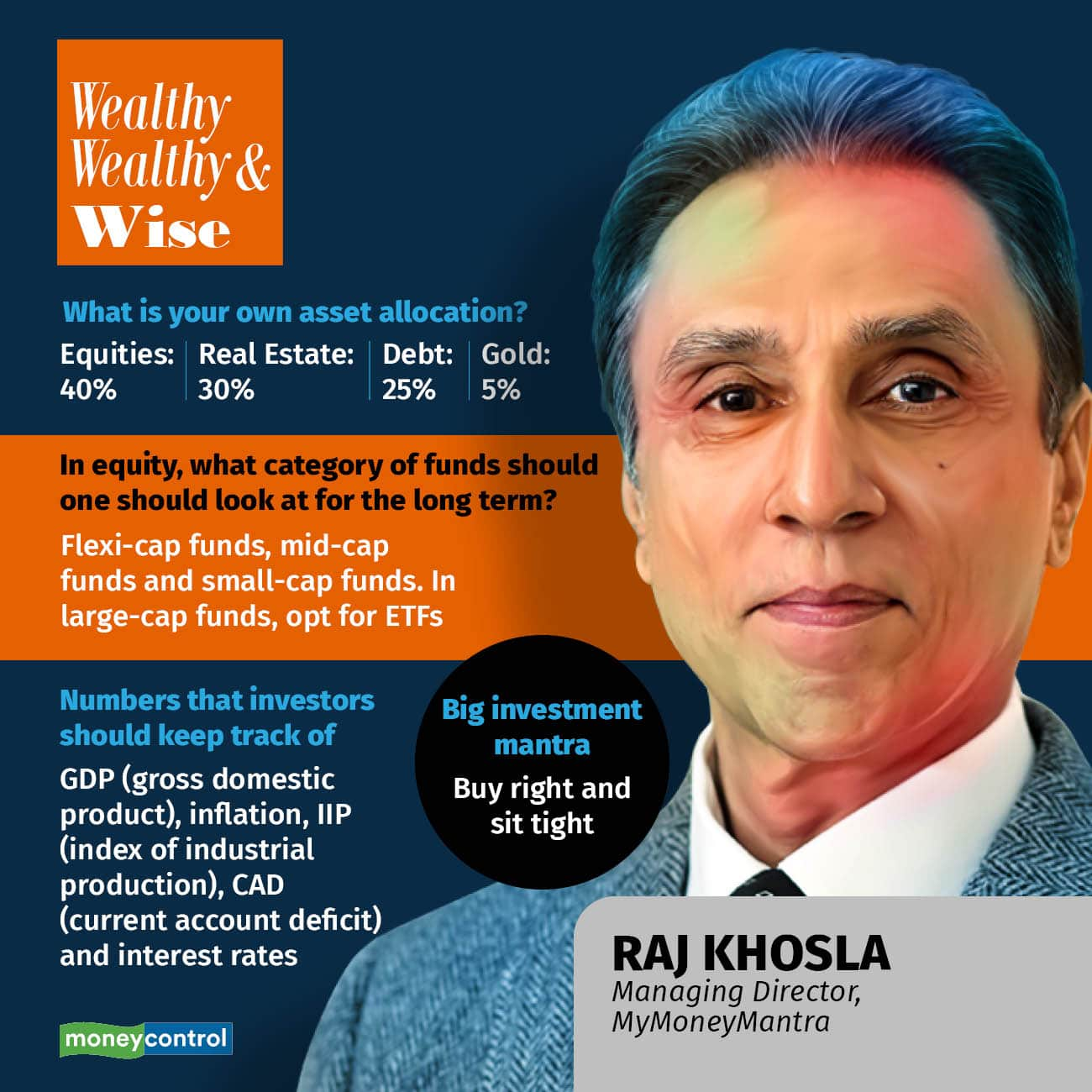



As we approach the beginning of the new financial year 2023-2024, it is a good time to review your financial matters. As our equity markets turn volatile, investors develop cold feet.
The ongoing changes in the regulatory landscape of mutual funds, and amendments in tax rules are some other issues that are adding to investors’ worries.
Raj Khosla, Managing Director, MyMoneyMantra, has seen many market cycles. In a conversation with Moneycontrol, he shares his views on many of these issues and how to invest at this juncture.
Edited excerpts:
Markets are witnessing increasing volatility in the last couple of months. What’s your advice to investors?
We have to admit that volatility is inherent in stocks. Investors should view volatility as an opportunity and gain from it. They should buy small quantities at every market fall. Decide the amount you want to invest and deploy 20 percent of it at every 10 percent correction in the market. Every investor should work on the percentage of their investments, according to their risk appetite.
Always keep in mind that market decline is an opportunity to buy rather than to sell. The best investments are done during bearish phases and the worst mistakes are committed during the bull runs when the excitement levels are high.
My advice for novice investors is that anytime is a good time to start investing in the equity markets, if you have a long investment horizon.
The Finance Bill amendment will affect debt mutual fund investors, after April 1. What should be debt fund investors' strategy?
For many investors, the amendment has taken away the very reason for investing in debt funds. However, this is not entirely correct. Debt funds will continue to enjoy certain advantages over fixed deposits even after the parity in taxation.
Income from debt funds is treated as capital gains, and can, therefore, be set off against short-term and long-term capital losses on other investments.
Besides, unlike in fixed deposits, there is no TDS in debt funds. In fixed deposits, if the interest income exceeds Rs 40,000 in a financial year, there is a 10 percent TDS. Even individuals who are not liable to tax end up paying the TDS and then claiming it back by filing returns.
Debt funds also offer greater flexibility to investors. You can invest any amount any time and can make partial withdrawals. In fixed deposits, the entire investment has to be terminated if you want to withdraw.
When the stock market corrects, many investors sell in panic and then buy them later. What’s your opinion on such an investment strategy?
Trying to time the market is honestly a fruitless pursuit. It's something you should not attempt. You have to be lucky all the time when you buy shares initially, and when you sell them and when you buy them back. So, it is unlikely that you will be able to catch the lows and the highs all the time.
Investors should go by Warren Buffett's golden rule. If you aren't willing to own a stock for 10 years, don't even think about owning it for 10 minutes.

Assuming I have Rs 10 lakh, where should I invest it in the new financial year?
The best way is to spread it across all asset classes, proportionate to your risk appetite. This varies for different people. Essentially, if you're an aggressive investor, put at least 70 percent in equities, 20 percent in debt options, and 10 percent in gold.
Moderate investors should put 50 percent in equities, 30 percent in debt, 10 percent in real estate via real-estate investment trusts (REITs) and the remaining 10 percent in gold.
Lastly, risk-averse investors should keep 25 percent in equities, 50 percent in debt, 15 percent in real estate via REITs and 10 percent in gold.
Also read | MC30: The best mutual funds to invest in
How many mutual fund schemes should an investor ideally have in their portfolio to avoid any overlapping of stocks?
A portfolio should ideally have two to three flexi-cap equity funds, one or two mid-caps and one or two small-cap funds. In the portfolio, one can also have one short-term, one medium-term and a long-term bond fund. So about 8-10 funds can be there in an ideal portfolio.
Apart from equity and debt, what are the other asset classes that can be considered? How much should be the ideal asset allocation in today's scenario?
One can invest in real estate through REITs and in gold through various channels, including gold exchange-traded funds (ETFs), gold funds, sovereign gold bonds and physical gold. We expect gold to do well, but don't invest more than 10- 15 percent of your portfolio there. Gold prices have already gone up, so you should prefer to invest in gold at regular intervals.
Discover the latest Business News, Sensex, and Nifty updates. Obtain Personal Finance insights, tax queries, and expert opinions on Moneycontrol or download the Moneycontrol App to stay updated!
Find the best of Al News in one place, specially curated for you every weekend.
Stay on top of the latest tech trends and biggest startup news.